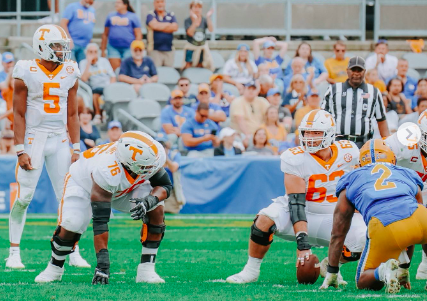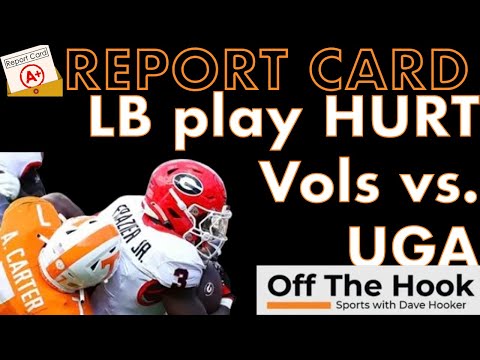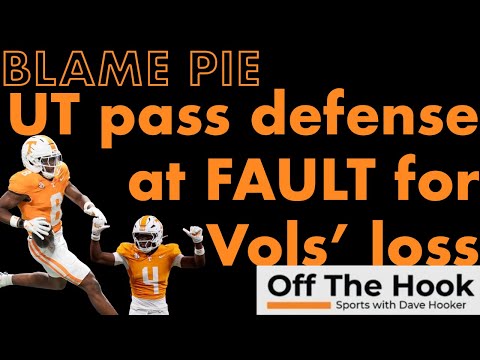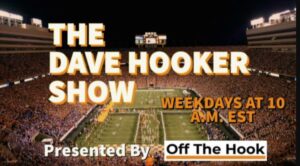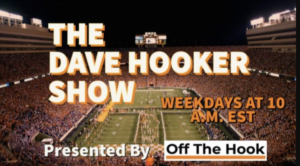Opt-outs are almost commonplace in today’s world of college football. Tennessee football may have some coming ahead of its Orange Bowl appearance against the Clemson Tigers.
Jalin Hyatt – the Vols’ top-producing wide receiver – could opt out and prepare for the draft. His status is a bit up in the air, though, as Dave Hooker writes about here.
There seems to be very stark opinions on if opt-outs are good, or bad, for the sport. Tennessee football offensive lineman Cooper Mays doesn’t appear to mind them as much as others.
“I’m probably going to be more on the player side, just naturally,” Mays told Off The Hook Sports. “But I think there was a lot of people that have strong opinions on it that are kind of baseless, if that makes sense. Everybody’s situation is different. I think you need to look into what’s there, what there is at stake.”
Ohio State wide receiver Jaxon Smith-Njigba announced he was opting out for the rest of the season and would miss the College Football Playoff. Njigba received a lot of criticism on social media for his decision.
However Njigba wasn’t opting out to just ready himself for the NFL draft, but to heal himself from an injury he suffered during the season.
“Nobody knows what some kids are playing through, especially at this point in the season,” Mays said. “There’s a lot of injuries that nobody knows about. What people are going through just for backing out or transferring, I think it’s a hard case.”
The world of NIL has thrown a wrinkle in when collegiate athletes declare for the draft. Before players were able to be paid in college, it was assumed that highly-touted players would head to the draft after their junior season.
Now, with NIL money, some players may make more in college than they would professionally. On the flip side, if you’re not a skill position player, you would probably make more in the NFL.
“It’s the world we live in nowadays,” Mays said. “Everything revolves around money. So, if there’s a better opportunity, why not go grab it? People will throw rocks and stones at these people making these decisions to leave for greener grass. But at the end of the day, go to a different opportunity. Coaches go, coaches leave and go find a new opportunity and everybody is allowed to leave as anything. But then when players leave, it seems like there’s more of a bitter taste in people’s mouth.”
The decision to opt out is a tough one for any athlete. Most players, like Hyatt is now, consult their family, coaches, friends, and teammates.
Mays sees himself as someone who is a leader in the Tennessee football locker room and someone his teammates can consult for advice.
“There’s so many factors that play into why people do what they do,” Mays said. “A lot of people like my opinion in the locker room, if people are arguing, they’ll probably ask me like, ‘Oh, here’s Coop here, let’s ask him.’ I think people kind of take what I say seriously. He comes to me with a question about opting out or not or just talking about it in general. I think I probably give him some pretty solid advice.”

